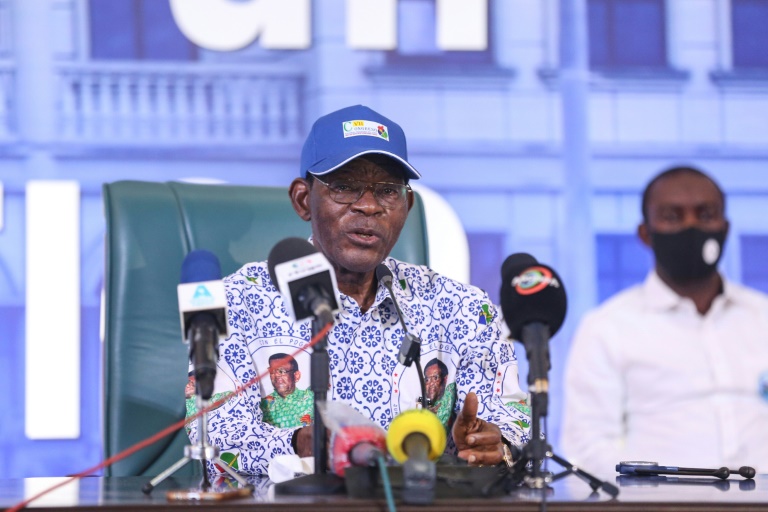Kenya govt threatens striking pilots with disciplinary action
Pilots on strike at Kenya Airways will face disciplinary action if they don’t return to work immediately, the government said Sunday, with thousands of passengers stranded for a second day after dozens of fresh flight cancellations.
The Kenya Airline Pilots Association (KALPA) launched the strike at Nairobi’s Jomo Kenyatta International Airport at 06:00 am (0300 GMT) on Saturday — defying a court order against industrial action and deepening the woes of the troubled national carrier.
“Considering the defiance of KALPA and their total disregard for the existing court order –- which is at the heart of the rule of law — the Ministry of Labour now has to activate the procedures governing industrial relations,” Kenya’s Transport Minister Kipchumba Murkomen said in a statement.
“I urge the pilots to be mindful of the consequences of defying a court order and to urgently return to work because impunity cannot be an option,” the newly-appointed minister added.
The airline, part owned by the government and Air France-KLM, is one of the biggest in Africa, connecting multiple countries to Europe and Asia.
But it has been facing turbulent times, including years of losses.
Murkomen said the government, which has pumped millions of dollars into the airline, had made “relentless efforts” to resolve the dispute but to no avail.
“The sour and chronic industrial action is an impediment to ongoing efforts to raise capital for Kenya Airways,” he said.
There was no immediate response to the minister’s statement from KALPA, which earlier on Sunday said that its members would remain on strike “until their voice is heard.”
“The public should expect major flight disruptions to continue,” it said on Twitter, blaming the airline’s management for failing to resolve the stalemate.
The airline’s managing director and CEO, Allan Kilavuka, in turn accused the protesting pilots — who make up 10 percent of the workforce — of “holding passengers, other employees, management and the economy at ransom.”
He said Sunday that 56 flights had been cancelled due to the strike, which has thrown around 12,000 passengers’ plans into disarray.
– ‘Inconveniencing’ –
Many travellers turned up to the Nairobi airport on Sunday, only to find out that their flights would not take off.
“I came here at around 5:25 in the morning… but I have been informed that the flight has been cancelled,” passenger Erick Muhanda, who was due to travel to South Africa’s port city of Cape Town, told broadcaster Citizen TV.
“It’s quite inconveniencing,” he said.
The pilots are pressing for the reinstatement of contributions to a provident fund and payment of all salaries stopped during the Covid-19 pandemic.
On Monday, the airline won a court injunction stopping the strike, but an official at KALPA, which has 400 members, told AFP the pilots “were acting within the provisions of the law” and that they were yet to be served with a court order.
The carrier has warned that the strike would jeopardise its recovery, estimating losses at $2.5 million per day if the pilots went ahead with their plans.
The airline was founded in 1977 following the demise of East African Airways, and flies more than four million passengers to 42 destinations annually.
It has been operating in large part thanks to state bailouts following years of losses.
The carrier saw its revenue nosedive after the pandemic grounded planes worldwide because of stringent travel restrictions, devastating the aerospace and tourism industries.
In August, the airline reported a $81.5 million half-year loss citing high fuel costs, despite the government injecting some $520 million to keep it afloat.
On Wednesday, the airline’s management said it was on the path to recovery, flying at least 250,000 passengers each month, and aiming to cut its overall operating costs by 10 percent before the end of next year.








